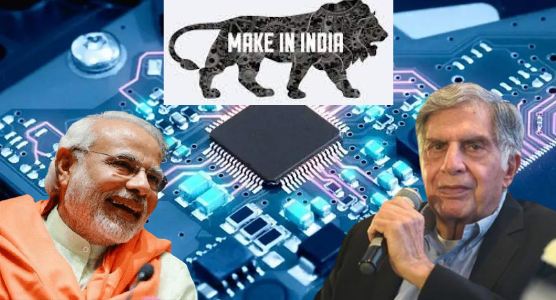India is all set to get its first semiconductor production facility by late next year. Tata group, which only recently saved Air India by buying it out is now all set to invest close to $300 million in an outsourced semiconductor assembly and test (OSAT) plant. An OSAT plant sources silicon wafers from semiconductor foundries, packages, assembles and tests them, finally turning them into finished semiconductor chips. For the same, Tata is in talks with at least three states – Karnataka, Telangana and Tamil Nadu. The final venue of the OSAT plat could be finalised as early as next month, with operations beginning by late 2022.
According to Reuters, the facility could employ up to 4,000 workers. According to two sources quoted by Reuters, adding availability of skilled labour at the right cost is key to the long-term viability of the project. One of the sources said, “Once Tata starts, the ecosystem will come around…So it’s very critical to find the right place from a labour standpoint.” The other source added, “While they (Tata) are very strong on the software side of things … hardware is something they want to add to their portfolio, which is very critical for long-term growth.”
Potential clients of Tata’s OSAT business include companies such as Intel, AMD and STMicroelectronics.Of course, Tata will also source semiconductors for its own needs from this very plant, while many Indian companies will also benefit tremendously from Tata’s initiative to make India independent when it comes to crucial microchips.
Usually made of silicon, semiconductors are a strategic technological asset in today’s globalised world. From car batteries to laptops to smartphones to household appliances to gaming consoles and everything in between, semiconductors perform the fulcrum of the job in powering smart electronic devices. The global semiconductor industry is valued at around 481 billion dollars as of 2018 and is dominated by companies from South Korea, Taiwan and Japan, all of which happen to be India’s friends.
Modi Govt in Talks with Semiconductor Firms to Invest in India
Giving a jolt to One China policy, the Modi government is in advanced talks with Taiwan over bringing a chip plant worth an estimated $7.5 billion to India to supply everything from 5G devices to electric cars. Separately, India is also working on a massive incentives package to attract microchip investments, and the Prime Minister’s Office is leading the effort.
At a time when the world is facing an intense semiconductor shortage and the U.S. and European Union work to attract semiconductor firms to set up base in their territories, India is all set to roll out mega multi-billion-dollar capital support and production-linked incentive plan to push manufacturing of semiconductors in the country.
According to the Times of India, on the cards could be financial support on capital expenditure, tariff reductions on certain components, and benefits through programmes such as Scheme for Promotion of Manufacturing of Electronic Components and Semiconductors (SPECS) and production-linked incentive (PLI). The government is in talks with companies like Taiwan Semiconductor Manufacturing Co. (TSMC), Intel, AMD, Fujitsu, United Microelectronics Corp.
Time for India to Go ‘Aatmanirbhar’
The world is facing a chip shortage. Companies are increasingly decoupling from China, and the demand for Taiwanese semiconductors has shot up. However, there are not enough semiconductor manufacturing facilities around the world that can keep up with the soaring demand for these electronic chips. Therefore, India’s push for attracting semiconductor firms to manufacture in the country could not have come at a better time.
